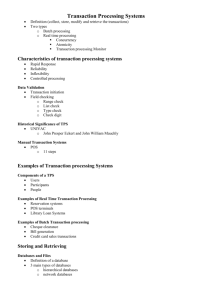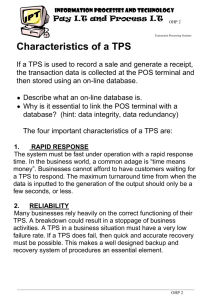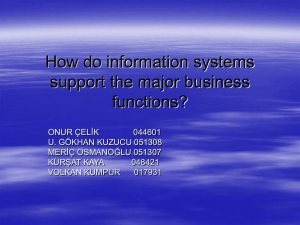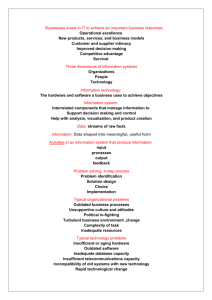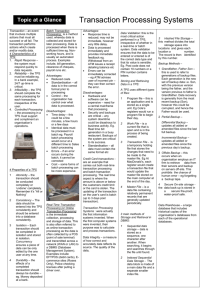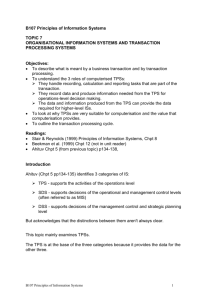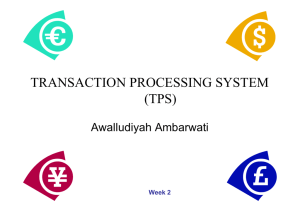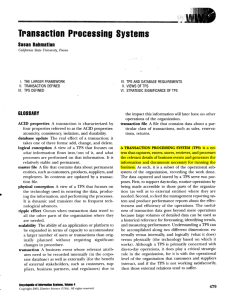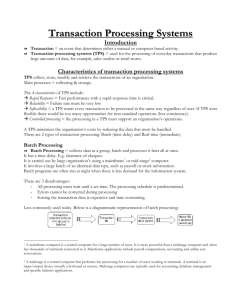Transaction Processing Systems (TPS) Characteristics
advertisement
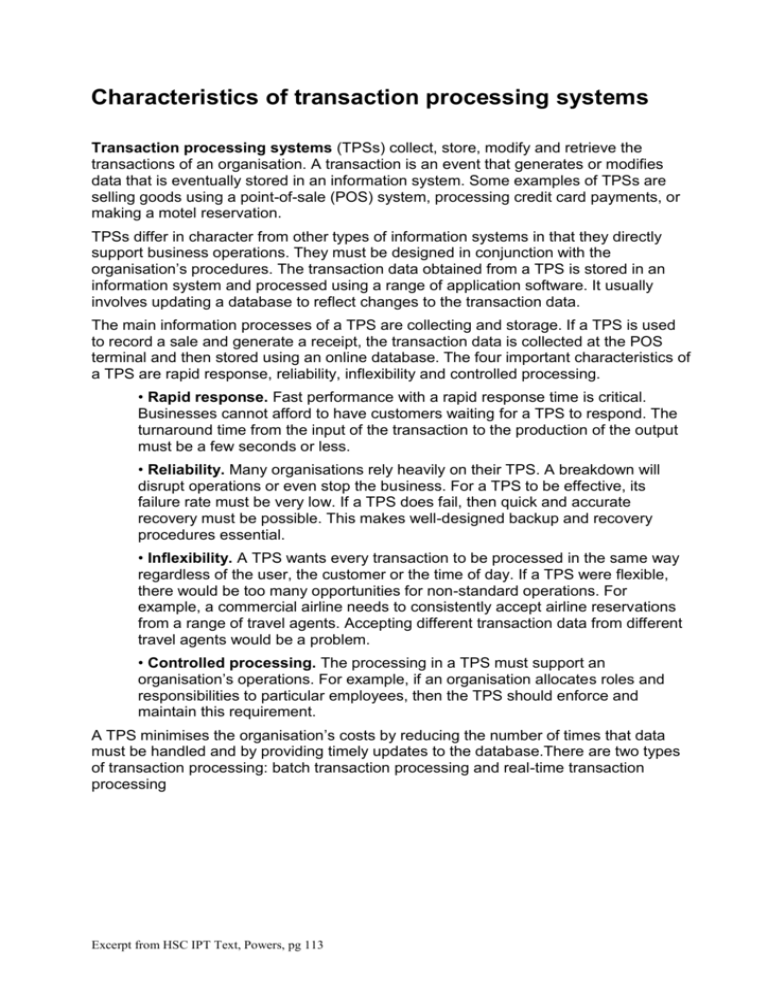
Characteristics of transaction processing systems Transaction processing systems (TPSs) collect, store, modify and retrieve the transactions of an organisation. A transaction is an event that generates or modifies data that is eventually stored in an information system. Some examples of TPSs are selling goods using a point-of-sale (POS) system, processing credit card payments, or making a motel reservation. TPSs differ in character from other types of information systems in that they directly support business operations. They must be designed in conjunction with the organisation’s procedures. The transaction data obtained from a TPS is stored in an information system and processed using a range of application software. It usually involves updating a database to reflect changes to the transaction data. The main information processes of a TPS are collecting and storage. If a TPS is used to record a sale and generate a receipt, the transaction data is collected at the POS terminal and then stored using an online database. The four important characteristics of a TPS are rapid response, reliability, inflexibility and controlled processing. • Rapid response. Fast performance with a rapid response time is critical. Businesses cannot afford to have customers waiting for a TPS to respond. The turnaround time from the input of the transaction to the production of the output must be a few seconds or less. • Reliability. Many organisations rely heavily on their TPS. A breakdown will disrupt operations or even stop the business. For a TPS to be effective, its failure rate must be very low. If a TPS does fail, then quick and accurate recovery must be possible. This makes well-designed backup and recovery procedures essential. • Inflexibility. A TPS wants every transaction to be processed in the same way regardless of the user, the customer or the time of day. If a TPS were flexible, there would be too many opportunities for non-standard operations. For example, a commercial airline needs to consistently accept airline reservations from a range of travel agents. Accepting different transaction data from different travel agents would be a problem. • Controlled processing. The processing in a TPS must support an organisation’s operations. For example, if an organisation allocates roles and responsibilities to particular employees, then the TPS should enforce and maintain this requirement. A TPS minimises the organisation’s costs by reducing the number of times that data must be handled and by providing timely updates to the database.There are two types of transaction processing: batch transaction processing and real-time transaction processing Excerpt from HSC IPT Text, Powers, pg 113


